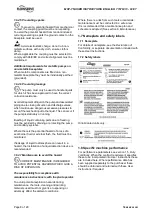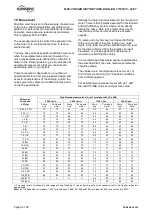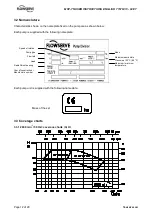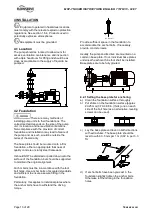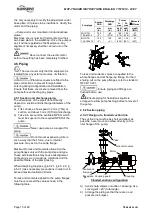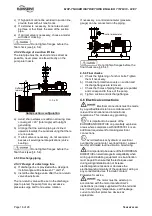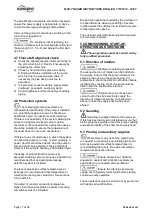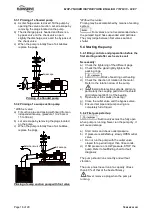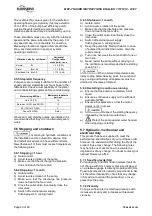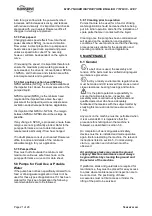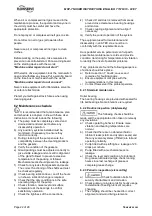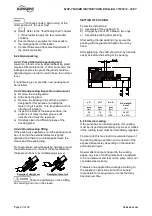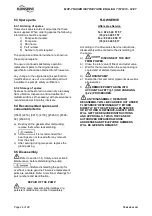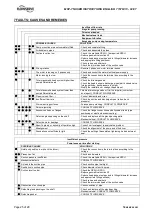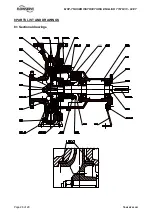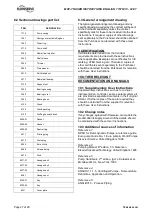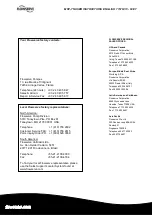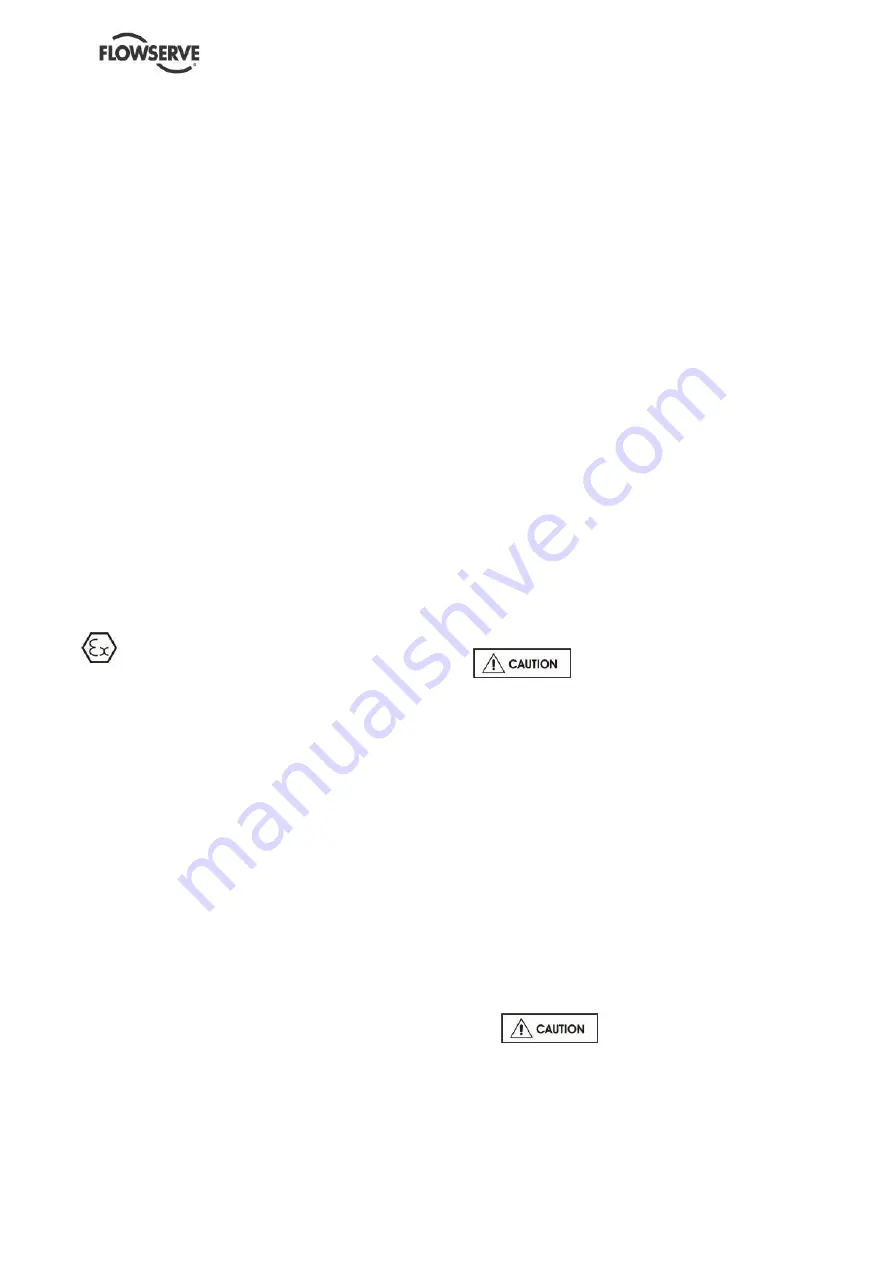
MHP-TN USER INSTRUCTIONS ENGLISH 71576313 - 02/07
Page 22 of 28
flowserve.com
When air or compressed inert gas is used in the
maintenance process, the operator and anyone in
the vicinity must be careful and have the
appropriate protection.
Do not spray air or compressed inert gas on skin.
Do not direct an air or gas jet towards other
people.
Never use air or compressed inert gas to clean
clothes.
Before working on the pump, take measures to
prevent an uncontrolled start. Put a warning board
on the starting device with the words:
"Machine under repair: do not start"
.
With electric drive equipment, lock the main switch
open and withdraw any fuses. Put a warning board
on the fuse box or main switch with the words:
"Machine under repair: do not connect"
.
Never clean equipment with inflammable solvents
or carbon tetrachloride.
Protect yourself against toxic fumes when using
cleaning agents.
6.2 Maintenance schedule
It is recommended that a maintenance plan
and schedule is adopted, in line with these User
Instructions. It should include the following:
a) The pump must be completely vented and
drained and rendered inert before any
disassembly operation.
b)
Any auxiliary systems installed must be
monitored, if necessary, to ensure they
function correctly.
c)
During cleaning of the pump ensure the
compatibility between the cleaning products
and the gaskets.
d)
Verify the condition of the gaskets.
e) Gland packings must be adjusted correctly to
give visible leakage and concentric alignment
of the gland follower to prevent excessive
temperature of the packing or follower.
Mechanical seals should present no leakage.
f)
Check for any leaks from gaskets and seals.
The correct functioning of the shaft seal must
be checked regularly.
g)
Check bearing lubricant level, and if the hours
run show a lubricant change is required.
h)
Check that the duty condition is in the safe
operating range for the pump.
i)
Check vibration, noise level and surface
temperature at the bearings to confirm
satisfactory operation.
j)
Check the tightness of the connections.
k)
Check dirt and dust is removed from areas
around close clearances, bearing housings
and motors.
l)
Check coupling alignment and re-align if
necessary.
m) Verify the correct operation of the system.
The equipment used for maintenance and
disassembly in an ATEX zone must be in
conformity with the requirements zone.
Our specialist service personnel can help with
preventative maintenance records and provide
condition monitoring for temperature and vibration
to identify the onset of potential problems.
If any problems are found the following sequence
of actions should take place:
a)
Refer to section 7,
Faults; causes and
remedies
, for fault diagnosis.
b)
Ensure equipment complies with the
recommendations in this manual.
c)
Contact Flowserve if the problem persists.
6.2.1 Standard maintenance
Roller bearing
The bearing housings are provided with sealed for
life ball bearings. No maintenance is required.
6.2.2 Routine inspection (daily/weekly)
The following checks should be
made and the appropriate action taken to remedy
any deviations:
a)
Check operating behavior. Ensure noise,
vibration and bearing temperatures are
normal.
b)
Check that there are no abnormal fluid or
lubricant leaks (static and dynamic seals) and
that any sealant systems (if fitted) are full and
operating normally.
c)
Pump fitted with a stuffing box: leakage of 20
drops per minute.
d)
Pump fitted with a mechanical seal: no
leakage.
e)
Check the level and condition of oil lubricant.
On grease lubricated pumps, check running
hours since last recharge of grease or
complete grease change.
6.2.3 Periodic inspection (six monthly)
a)
Check foundation bolts for
security of attachment and corrosion.
b)
Check pump-running records for hourly usage
to determine if bearing lubricant requires
changing.
c)
The coupling should be checked for correct
alignment and worn driving elements.

